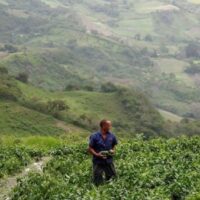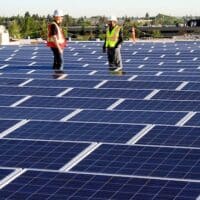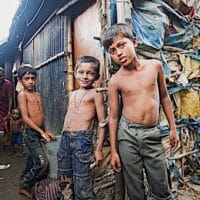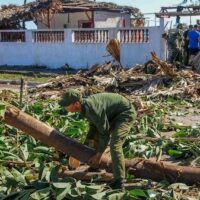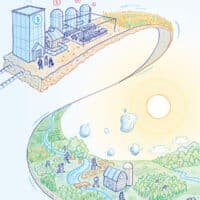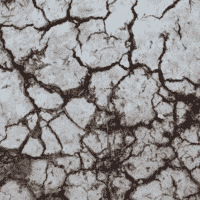-
Venezuela’s Seed Law should be a global model
For peasant farmers, the battle over seed rights is critical to their livelihoods.
-
The framework convention on climate is dead. Now what?
The UN Framework Convention on Climate Change went into effect in March 1994. Yet, of the twenty-seven meetings that the UNFCCC has held to date, the most recent one, in Sharm-el-Sheik, Egypt, was the most inconsequential.
-
The lesson we should have learned from ‘Silent Spring’
We have to address the way that corporations create, shape, and control demand, leveraging the state as a tool.
-
Hypocrisy of the rich countries and the green energy’s storage problem
THE crux of the issue is that non-fossil, or even a low fossil fuel path, will need grid-level storage costs to drop by a factor of 10 times what they are today!
-
The Netherlands: Template for ecomodernism’s Brave New World?
Disaster capitalism and crisis narratives are currently being used to manipulate popular sentiment and push through a set of unpalatable policies that would otherwise lack sufficient political support.
-
The environment may be the number one issue in the new agenda among progressive South American
Petro’s, Lula’s, and Maduro’s positions show South Americans are united about the Amazon; it may reintegrate Venezuela.
-
In Malay, orangutans means ‘people of the forest’, but those forests are disappearing: The Forty-Seventh Newsletter (2022)
The dust has settled at the resorts in Sharm el-Shaikh, Egypt, as delegates of countries and corporations leave the 27th Conference of the Parties (COP) of the United Nations Framework Convention on Climate Change. The only advance made in the final agreement was for the creation of a ‘loss and damage fund’ for ‘vulnerable countries’.
-
Greta Thunberg: ‘Wake up and treat the climate emergency as an emergency’
Climate activist Greta Thunberg was interviewed by ABC’s 7.30 presenter Sarah Ferguson on November 3. Below is a transcript of the interview.
-
Economics and dishonesty
In 1973-74 the Planning Commission in India had defined poverty as the inability to access 2400 calories per person per day in rural India (in practice however it applied a lower 2200 calories norm), and 2100 calories per person per day in urban India.
-
Capitalism in the Anthropocene: Ecological Ruin or Ecological Revolution
The United Nations international panel on climate change, the IPPC, predicts that as a result of the increase in greenhouse gases by the year 2050 there will be 1 billion climate refugees. Temperatures must be held within a 1.5 Celsius increase. If it goes up, as predicted, an increase of 4 degrees would end civilization.
-
Hunger and poverty
THE Global Hunger Index (GHI) for 2022 has just come out, which shows India occupying the 107th position among the 121 countries for which the index is prepared (countries where hunger is not a noteworthy problem are left out of the index).
-
How Cuba is dealing with the devastation of Hurricane Ian
The day before Hurricane Ian hit Cuba, 50,000 people were evacuated and taken to 55 shelters. By October 1, less than five days after landfall, 82% of the residents of Havana had their power restored with work ongoing for the western part of the island.
-
New documents reveal callousness of fossil fuel execs—and Canada’s complicity
If your climate policy is supported by the oil and gas industry, it’s not climate policy at all
-
Biden is helping fossil fuel donors weaken his clean water rule
In backing Joe Manchin’s “permitting reform,” the president could undermine his own EPA initiative.
-
We will march, even if we have to wade through the Pakistani floodwaters: The Thirty-Sixth Newsletter (2022)
Dear friends, Greetings from the desk of Tricontinental: Institute for Social Research. Calamities are familiar to the people of Pakistan who have struggled through several catastrophic earthquakes, including those in 2005, 2013, and 2015 (to name the most damaging), as well as the horrendous floods of 2010. However, nothing could prepare the fifth most populated […]
-
Justice 4 Jackson. “Help us fix Jackson’s water system and build more autonomy and people power in the city.”
Jackson, Mississippi is currently suffering through an unprecedented water crisis.
-
Debt and the transition to regenerative agriculture
I grew up in a small town in Vermont, and like many I learned to love the smell of fresh cow manure being spread on fields in the spring.
-
Europe dries up
Scenes and pictures have been circulating of broken earth, lacking moisture, cracked and yearning. But these are not from traditional drought-stricken parts of the planet, where the animal carcass assumes near totemic power amidst dry riverbeds or desert expanses.
-
Mexican drought spurs a South Texas water crisis
Reservoirs in the Rio Grande Valley are running dry—sparking emergency water conservation measures.
-
How private corporations stole the sea from the Commons
For most of human history, the oceans have been seen as a global commons, the benefits and resources of which belong to us all in equal measure. But our seas–and the marine environment as a whole–are being ravaged by exploitation for corporate profit. The result is a social, economic and ecological crisis that threatens the very life support system of the Earth.

